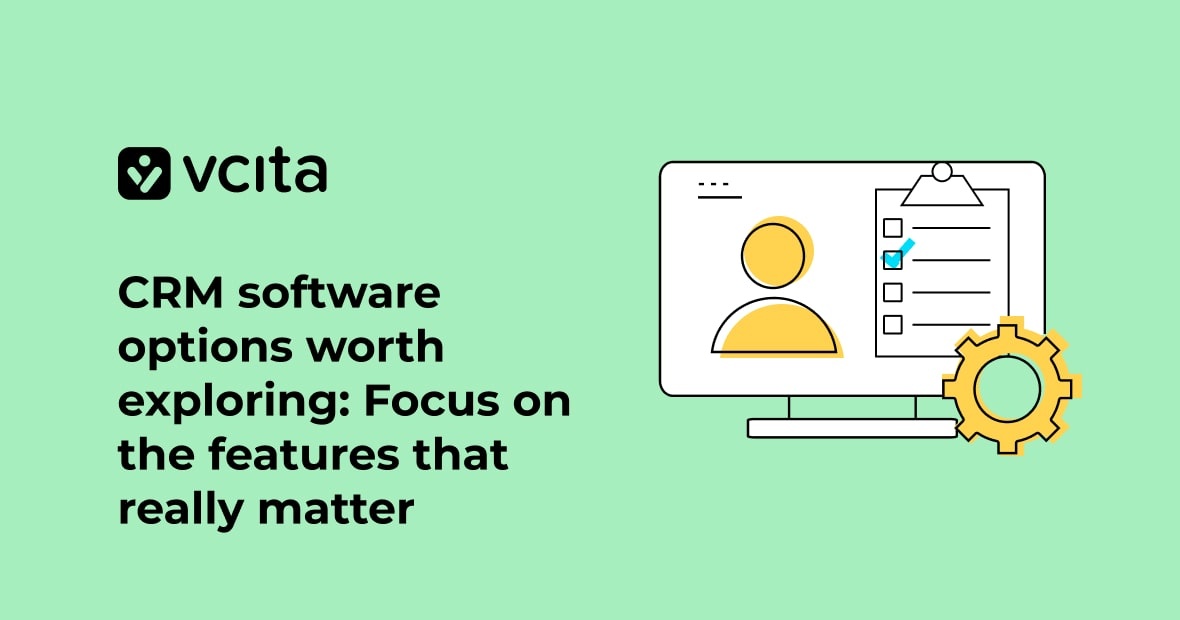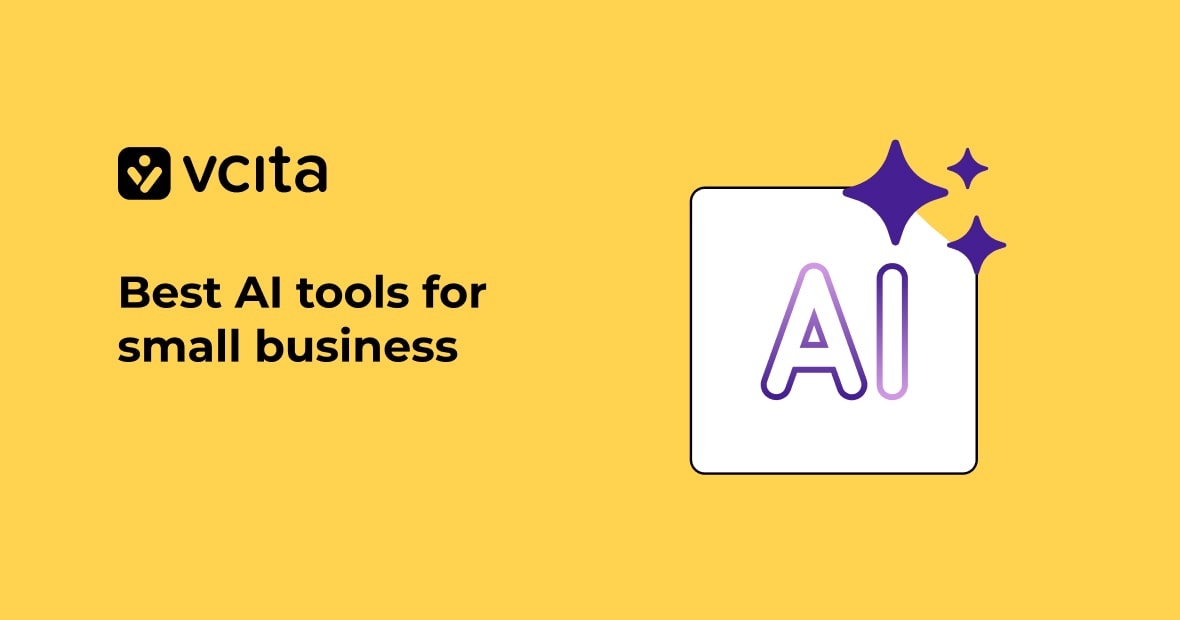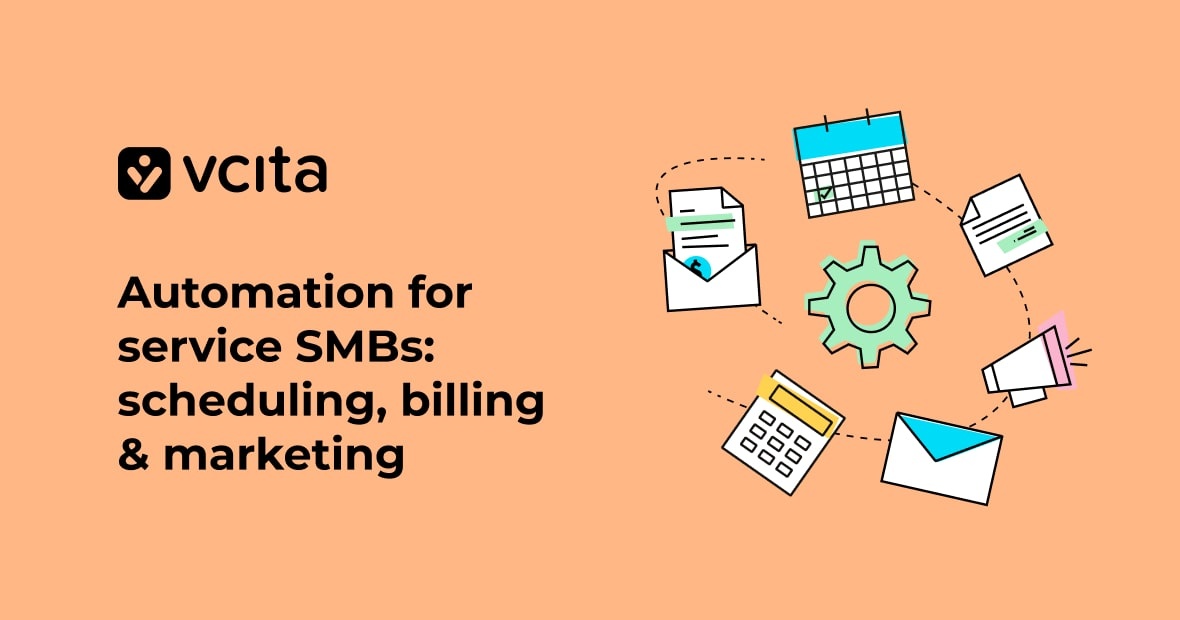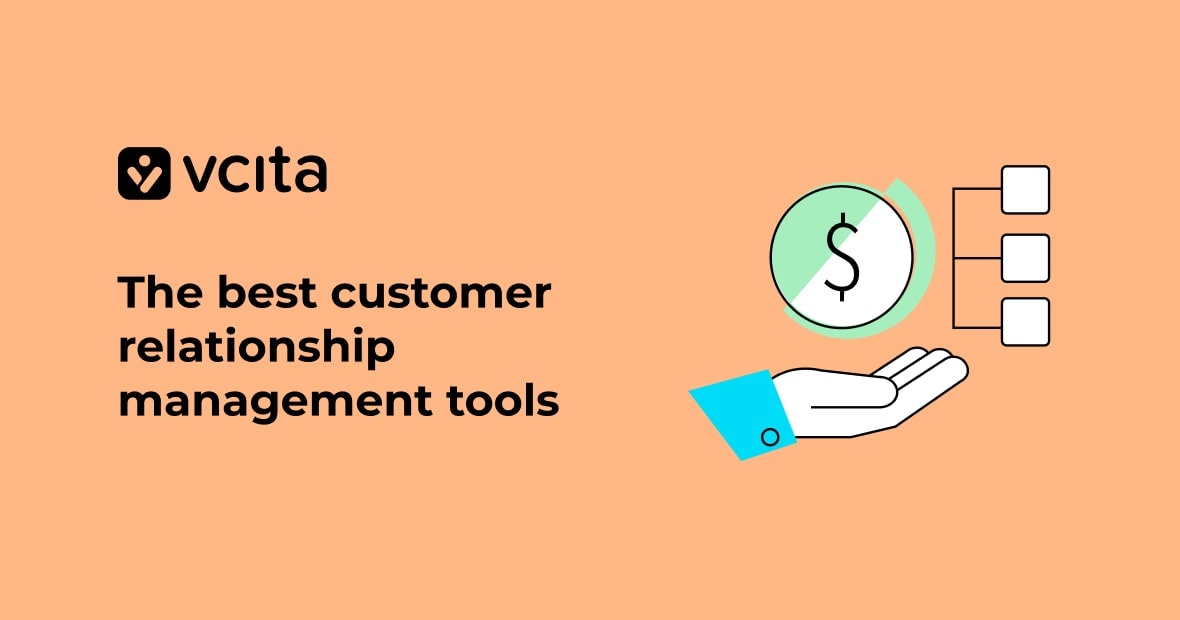Running a business means managing relationships every single day. Clients call, email, or message, and you follow up, send invoices, and book meetings. But keeping track of all this gets messy fast.
A CRM brings order to the chaos. Instead of hunting through old emails or relying on memory, you can see everything about a client in one place. Who they are, what they bought, when they last spoke with you, and what’s coming next.
For small businesses, the value is simple: a CRM saves time and prevents things from slipping through the cracks. It also helps clients feel taken care of. When you remember details, send reminders, and follow up at the right time, clients notice.
Key takeaways:
- A CRM helps small businesses stay organized by keeping all client info in one place.
- vcita is especially useful for small service businesses because it combines CRM, scheduling, and payments in a single platform.
- Other options include HubSpot, Zoho, Salesforce, and Pipedrive, depending on business size and needs.
- The best CRM is the one your team will actually use, simplicity matters.
Features that are truly essential:
Centralized client records
At the heart of every CRM is a place to store client information. But it’s not just a digital Rolodex. A good client record management system pulls together conversations, invoices, documents, and notes. Imagine a client calls you out of the blue. With a proper CRM, you can open their profile and see:
- Which services they purchased
- Whether they owe you money
- The last message you sent them
- Any notes you made about their preferences
Why it matters:
You don’t lose time flipping through apps or guessing about past conversations. Everything is right there.
vcita does this well. Its client card links together messages, payments, and appointments, giving you a full picture without extra clicks.
Easy scheduling
Scheduling is a big pain point for many service businesses. Endless back-and-forth emails to book a time slot are a waste of energy. With the right CRM, clients can book online directly and receive confirmation via email or SMS. You see the booking appear in your calendar, and both sides get timely reminders.
Why it matters:
Missed appointments cost money, while double bookings damage trust. A simple scheduling tool avoids both.
vcita’s scheduler widget ties into payments and reminders. That means a client can book, pay, and get a confirmation email in one smooth process.
Payment tracking and invoicing
Chasing payments is one of the least enjoyable parts of running a business. A CRM with payment tools can make it easier. Look for software that lets you:
- Create and send invoices
- Accept credit cards or online payments
- Track who has paid and who hasn’t
Why it matters:
Staying on top of payments is critical for cash flow. A CRM that links billing with client records saves hours of manual tracking.
With vcita, invoices are tied directly to client profiles, so you can see outstanding balances at a glance.
Communication tools
A good CRM makes it easy to reach clients and keep records of conversations. That might involve a built-in email or SMS functionality, or integrations with tools you already use. It’s even better when the CRM automates some of this communication. For example:
- Sending reminders before appointments
- Following up with thank-you messages
- Notifying clients when invoices are due
Why it matters:
Keeping communication consistent shows professionalism. And when everything is logged under the client profile, you never lose context.
vcita includes communications via built-in email and SMS tools, and integrates smoothly with all leading email and SMS automation solutions.
Automation for repetitive tasks
Automation doesn’t need to be fancy. Even small touches save time. For example, you could:
- Automatically sending a reminder text before an appointment
- Automatically trigger a thank-you email after a payment
- Automatically schedule a follow-up task after a call
Why it matters:
You don’t need to remember every single task and carry it out yourself. An automated system handles routine activities so that you can focus on bigger things.
vcita offers many useful business automations, including automated reminders, automated customer information updates, and automated follow-up emails.
Customization without headaches
Every business has its own way of working. The best CRMs let you customize fields, labels, or workflows to match your style.
Why it matters:
A rigid system will feel like extra work. You want the CRM to adapt to you, not the other way around.
It’s easy to customize the vcita CRM, adding your own fields, labels, logos, color schemes, automated workflows, and more.
Mobile access
Most business owners aren’t chained to a desk. If a client messages you while you’re out, you should be able to reply, check their history, and update notes right away.
Why it matters:
A strong mobile app keeps you responsive, even on the go.
vcita comes with a baked-in mobile app for both Android and iOS, so that you can manage your business no matter where you are.
Integrations with other tools
Even if your CRM is central, you’ll likely use other apps. A good system connects with them, email, calendar, accounting, marketing.
Why it matters:
Integrated systems save you time logging in and out of multiple tools, and reduces the risks of manual data entry causing duplications and other errors creeping in.
vcita integrates with leading business tools and syncs easily with calendars, email solutions, and more.
CRM options to explore
vcita
Best for: Small service-based businesses.
vcita is built with small business owners in mind. It combines client records, scheduling, invoicing, payments, and communication in one place. That means you don’t need five different apps.
Examples of who might use it:
- A fitness coach booking sessions and collecting payments online
- A salon owner managing appointments and sending reminders
- A consultant sending invoices and following up with clients by SMS
Because everything is tied to the client card, you always have the full picture. This makes it especially useful for businesses where one person handles sales, service, and admin.
HubSpot
Best for: Businesses growing into marketing and sales funnels.
HubSpot’s free plan gives you a lot, including client records, email templates, and deal tracking. As you scale, you can add advanced marketing and automation tools.
It’s great if you want marketing campaigns tied directly to your CRM. But if you only need simple client management, it may feel heavier than necessary.
Zoho CRM
Best for: Customization on a budget.
Zoho is known for being affordable and flexible. It offers a huge suite of tools beyond CRM, from accounting to email automation.
The downside: the number of options can feel overwhelming. But if you like tinkering and want something you can tailor, it’s worth a look.
Salesforce
Best for: Large companies with complex needs.
Salesforce is extremely powerful and customizable. But it comes with higher costs and usually requires training or setup help.
If you’re a small business, it’s probably more than you need. But if you run a larger team with multiple departments, it may be the right choice.
Pipedrive
Best for: Small teams focused on sales pipelines.
Pipedrive is simple and visual. It’s designed around managing deals through stages. If your main focus is sales, it’s a strong option.
But it doesn’t include much for scheduling or payments, so you may need to pair it with other tools.
How to choose a small business CRM
When comparing CRMs, focus on fit, not features.
Ask yourself:
- What’s my main pain point? (e.g. scheduling, payments, or sales tracking)
- Do I want everything in one system, or am I okay with using multiple apps?
- How much time do I want to spend learning the software?
- What’s my budget now, and how will it grow as I add clients?
A CRM only works if it becomes part of daily work. The easier it is to use, the more likely your team will stick with it.
The bottom line about small business CRM
The right CRM doesn’t just hold data. It helps you stay organized, save time, and give clients a better experience. That’s why vcita stands out for small businesses. It goes beyond basic CRM capabilities, adding scheduling, payments, and client communication, all tied to one client record.
Other tools, HubSpot, Zoho, Salesforce, Pipedrive, may fit depending on your size and focus. The key is choosing a system that feels easy and natural to use, because the best CRM isn’t the one with the most features. It’s the one you and your team will actually use every day.
FAQs
- What is the main purpose of a CRM?
To store client information, track interactions, and make communication smoother. - Do small businesses really need a CRM?
Yes. Even simple CRMs save time, prevent missed details, and make you look more professional. - How much does CRM software cost?
Costs vary. For example, HubSpot offers a free plan; vcita has affordable monthly options that include scheduling and payments; Enterprise tools like Salesforce cost more. - What’s the difference between CRM and project management software?
CRMs focus on clients and sales, while project management tools focus on tasks and workflows. There can be some overlap between them, but they solve different problems. - Why is vcita good for small businesses?
Because it combines CRM with booking, invoicing, and client communication. That means fewer apps, less switching, and a smoother workflow. - Can I start with a free CRM?
Yes. Many businesses offer a free plan like HubSpot or Zoho. But as your needs grow, you may want to pay for extra features. - How long does it take to set up a CRM?
It depends. Some, like vcita or Pipedrive, can be set up in a day. Others, like Salesforce, may take weeks with training.




























